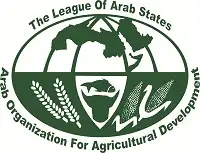Statement by the Minister of Industry The industrial sector was significantly affected by the war

Ms. Mahassen Ali Yacoub, Minister of Industry, during her participation in the events of the Coordination Forum of the Governors of the States, which was organized from December 5 to 7 in El Gedaref, informed about the role and importance of the Ministry of Industry and the industry’s contribution to the national economy and the ambulatory plan.
The industry was the locomotive of economic development, adding that its main objective was to replace imports to reduce hard currencies for imports, develop exports and maximize returns. It explained the impact of the industrial sector as a result of the war in the country. More than 90% of existing factories in Khartoum state were destroyed, especially since most of the industry was concentrated in Khartoum state, resulting in the loss of most consumer goods, including food products, medicines and others.
The most important pillar of the Ministry’s ambulatory plan is the conversion of rehabilitative factories from Khartoum State to safe states with the aim of operating and localizing industry, as well as the opening of branches of existing factories in Khartoum State in all safe states according to the comparative advantages of available resources and infrastructure, as well as the attraction of industrial investment in all safe states, with a focus on agricultural manufacturing to achieve added value and the provision of food security commodities to cover domestic consumption and accessible markets.
It called for joint action with all the competent authorities to operate the factories that are parked in all states and return them to the Production Department. It announced the establishment of industrial offices in all the safe states as well as offices now operating and supporting them with qualified materials to follow up the factories. It should be supported by the provision of all work aids to enable these offices to play a role in the development and development of small, artisanal and rural industries and linking them to large industries to achieve the principle of handling.
In its recommendations, it called on all states to promote a climate conducive to attracting manufacturing and to give them preferential advantages in granting land while streamlining procedures for settling such industries. It stressed that no levies should be levied on such factories, except for services, to be collected through a consolidated window and secured the Ministry of Finance’s important role in providing work aids to all state industry offices, with the states themselves playing their role in providing offices and housing.
It also called for coordination between the relevant productive sectors, especially agriculture in both plant and animal and mineral sectors, through forward and backward linkages to achieve value added and maximize the return on industrial exports and reduce the export of raw raw materials, in addition to the need for coordination with the Ministry of Commerce regarding industrial exports to benefit from regional and international agreements.





